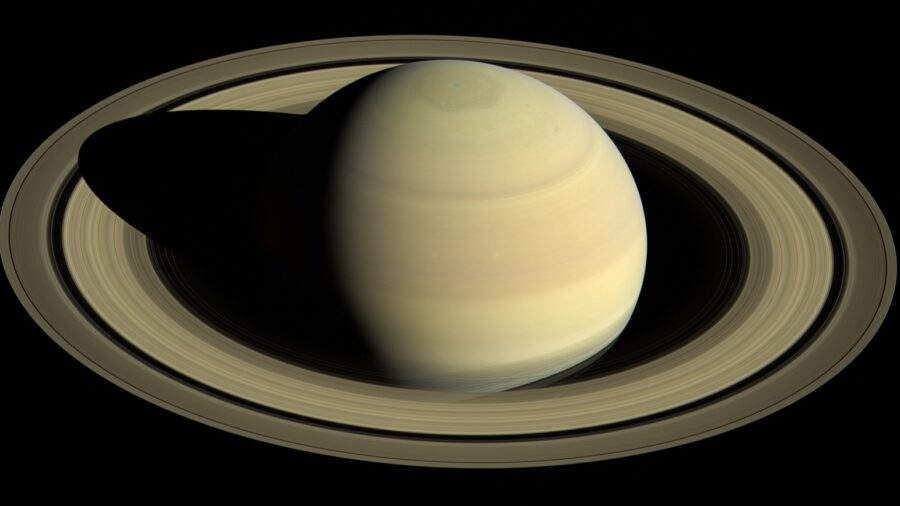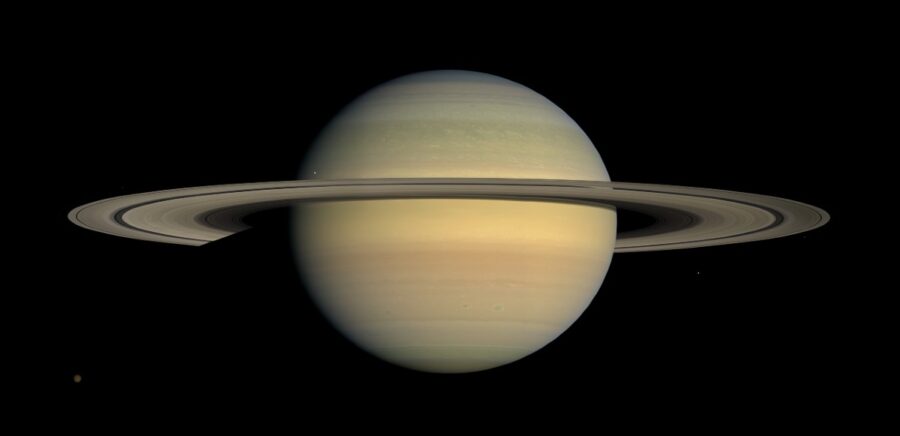Saturn’s Moon Enceladus Produces Rare Building Block For Life
Enceladus, one of Saturn's moons, contains phosphorus, the only confirmed source away from Earth.

Sci.News reports that scientists have found a high concentration of phosphorus in the ocean of Saturn’s moon Enceladus. Phosphates are considered an essential building block of life as we know it, essential for the formation of bones, teeth, cell membranes, and even DNA and RNA. So far, however, they have never been found outside Earth’s oceans.
In this latest discovery, not only does the global water ocean of Enceladus have phosphorus, it has a lot of it—a concentration some 100 times greater than that of Earth’s oceans. The presence of the essential mineral was predicted in 2020, according to Dr. Christopher Glein of the Southwest Research Institute, by using geochemical modeling. The discovery of the actual phosphorus itself, however, is a major breakthrough that confirms the work previously done.
The finding on Enceladus comes from a study by Glein and planetary scientist Dr. Frank Postberg of Freie Universität Berlin, using data from NASA’s Cassini spacecraft. The water ocean on Enceladus is beneath a layer of ice, while below it is a rocky core that is thought to be involved in hydrothermal activity, which causes plumes of gas to shoot ice particles into space. Cassini took samples of these ice particles with its Cosmic Dust Analyzer Instrument, which showed the presence of significant amounts of phosphorus salts.
This means the ocean on Enceladus is habitable, containing the essential building blocks of life. It’s a huge step forward in interplanetary biology and a major development in the search for extraterrestrial life. As has long been predicted, the life we find on other worlds is not especially likely to be advanced or intelligent but may be either microscopic or in the form of tiny aquatic creatures.

From these findings, it looks like Enceladus is a prime candidate for a place to find that life. Scientists at NASA and elsewhere have long theorized that Mars could once have been home to life, and the evidence that liquid water currently exists there was a major discovery. But without evidence of phosphorus, there is no way known to our understanding of life for any form of life to develop.
With an abundance of liquid water that appears to be teeming with phosphorus, Enceladus stands as the first place outside Earth where humans have been able to definitively conclude that the possibility of life exists. As scientists continue to search other bodies in our solar system for both water and phosphates, there could be more such discoveries in the future. For now, though, Saturn’s sixth-largest moon holds that distinction exclusively.
Another planetary scientist at Freie Universität Berlin, Dr. Nozair Khawaja, says the clear next step is to return to Enceladus to see whether there is any life in its ocean. How and when scientists will be able to do that is not certain, but it seems very likely that such a venture will be undertaken at some point in the future. The search for life on other planets has long been a driving force in the field of astronomy and could help us understand more about life on our own planet and our place in the universe.
Whenever and wherever extraterrestrial life is found, Enceladus could be a major part of that discovery.












